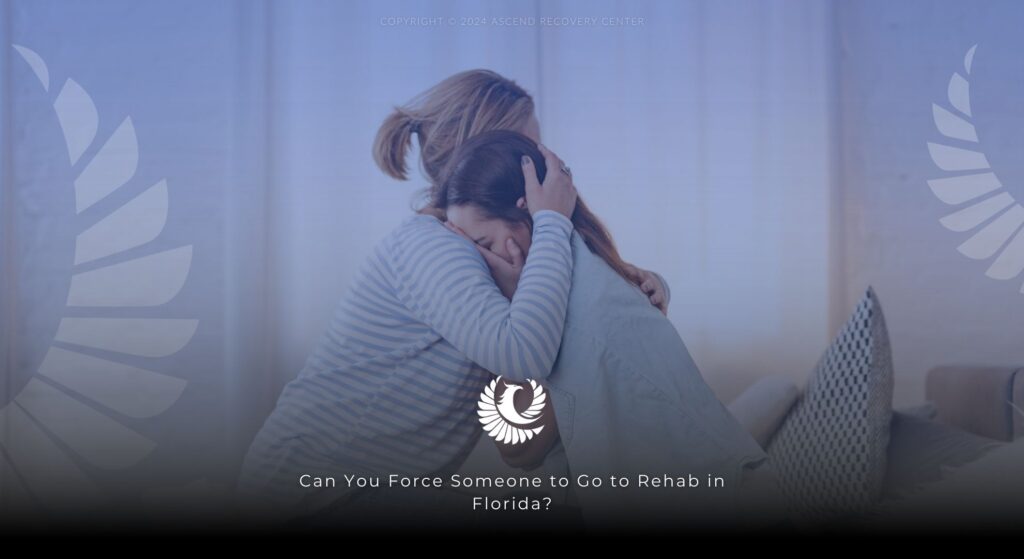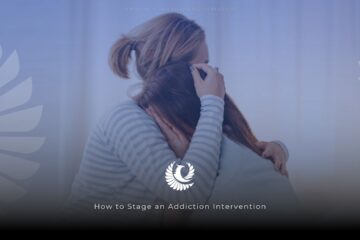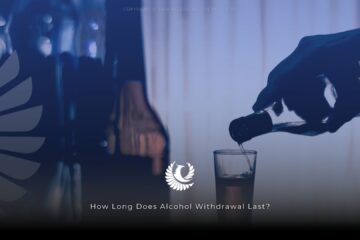If someone in your life struggles with substance abuse or addiction, you may understand the complex emotions surrounding this condition. You may feel afraid, anxious, or frustrated as you watch your loved one face the consequences of their drug or alcohol abuse.
People living with addiction do not choose this condition. Addiction is a disease that requires compassionate, comprehensive treatment and ongoing support.
But what if your loved one refuses to get treatment for drug or alcohol addiction? Can you force someone who struggles with addiction into an addiction treatment center for rehab?
There are several ways to help someone struggling with substance abuse get treatment. Some states have involuntary commitment laws allowing for involuntary treatment.
The state of Florida does have laws allowing loved ones to petition the courts for involuntary substance abuse treatment. This article will outline several ways to encourage a loved one to get help, including legal processes for forcing someone to go to rehab using involuntary commitment laws.
If someone in your life requires involuntary substance abuse or mental health treatment, contact the specialists at Ascend Recovery for guidance and support.
Recognizing Addiction
Addiction is a complex condition with roots in a person’s behaviors, health, and emotions. Effective addiction treatment provides comprehensive care for every part of a person. But people can only get help for addiction if they–or someone else–recognize a problem.
Addiction can change the way a person looks, thinks, feels, and behaves. Here are some things to watch for to help you identify drug and alcohol addiction:
- The person uses drugs or alcohol more than before
- Their appearance, appetite, behaviors, or sleep patterns change significantly
- They have new or worsening mental health symptoms
- They exhibit symptoms of withdrawal if they do not use drugs or drink
- The person spends a lot of time and energy getting and using drugs
- They isolate or only spend time with others who abuse drugs or alcohol
- They use slang terms for drugs
- You find drug paraphernalia or see drugs
- They become secretive or dishonest
People who develop addiction may continue to use drugs and alcohol, even when it makes them sick or causes severe short and long-term problems.
If someone in your life shows signs of addiction, take action right away to get them help.
How to Convince Someone to Go to Rehab
One of the best ways to convince someone to go to rehab is to stage an intervention. An intervention is a planned conversation between an addicted person and their loved ones.
During an intervention, friends and family explain how the addicted person’s behaviors have affected them. Finally, they ask the addicted person to go to treatment right away.
During the intervention, the addicted person will have to choose to accept treatment or decline help. If they decline to go to a rehab center, their friends and loved ones must follow through with predetermined consequences, such as:
- Refusing to give the addicted person money
- Not allowing the addicted person to live in their home
- Refusing to bail the addicted person out of jail
- Refusing to “rescue” the addicted person from the social, legal, or financial consequences of their substance abuse
Interventions are often successful at convincing people to go to treatment right away. However, it is important to plan the intervention carefully. Hiring a professional interventionist to help can increase the chances of success.
Can You Force Someone to Go to Rehab in Florida?
In 1993, Florida passed the Hal S. Marchman Alcohol and Other Drugs Services Act. People commonly refer to this law as the Marchman Act. The Marchman Act allows people to file a petition to commit a loved one to an addiction treatment program involuntarily.
The Marchman Act has guidelines and restrictions that prevent people from filing for involuntary treatment without reason. The law encourages people to seek treatment on their own. However, if people cannot make good decisions about their care, loved ones may pursue involuntary commitment.
A Guide to Using the Marchman Act
You may be able to use the Marchman Act, but only in limited scenarios. The law contains strict guidelines about when people can enact the Marchman Act. These guidelines prevent people from using it when it is not appropriate.
Here are the steps you will take when using the Marchman Act to obtain court-ordered treatment.
- Obtain information to prove your loved one is unable to act in their best interest because of drug or alcohol abuse.
- Locate a local rehab facility with an immediate bed opening.
- File a petition for involuntary commitment to a rehab center. You can find the necessary forms at your county clerk’s office.
- Provide information about the addicted person, including a physical description, mental and physical conditions, current location, and location of the rehab facility where they will be committed.
- Wait for a judge to approve or deny your petition. This can take up to 10 days.
If a judge approves your petition, law enforcement will locate your loved one and serve them with an order to attend treatment.
Find Support Now
If someone you love struggles with substance abuse or addiction, you are not alone. Reach out to the Ascend Recovery team to learn about our treatment programs or to learn more about petitioning for involuntary commitment to rehab in Florida.








